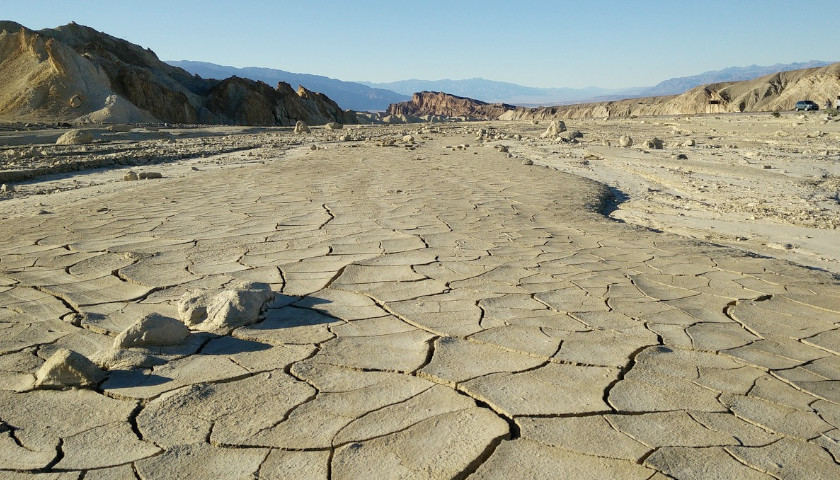by Charlotte Hazard
Arizona, known from its beginnings as the “Desert State,” has long sought new ways to provide water for its residents. But a roughly 19-year drought has created a host of new, urgent problems including how to regulate foreign and out-of-state businesses trying to capitalize on the demand.
“Eighty percent of our water is for agriculture, and a lot of it is unregulated,” community organizer Jacob Martinez recently told Just the News. “A California company can come into Arizona, put in a well and grow crops and go back to California and reap the benefits of that. We have no regulations, which is a problem.”
The problem is certainly not new.
Arizona, which has four deserts within its roughly 114,000 square miles, has been under drought-like conditions for nearly 20 years, which has reduced water levels in the Colorado River system that supplies the state with about 36% of its water.
The water shortage issue has more recently been compounded by the growing of alfalfa, a crop that requires extensive amounts of water to grow.
Residents and state officials are especially upset over farmers growing alfalfa in western Arizona – where water is in short supply – because some of the farms are foreign-owned and are shipping the crop to Saudi Arabia, where it’s illegal to grow alfalfa because the process requires so much water.
The state legislature is considering a ban on most foreign-owned farms, as a result of the backlash, according to CBS News.
“Pumps are pumping water out of the ground that belongs to the state of Arizona, and essentially it’s being exported to Saudi Arabia,” state Attorney General Kris Mayes told the news outlet.
Another example is the Saudi-owned dairy company, Fondomonte, which owns large tracts of desert in the western part of the state, atop a massive groundwater aquifer, because there are no regulations there on how much water can be pumped from the ground, and anyone who buys or leases land there can put in a well and draw water.
“I feel like we need to have some level of regulation because it’s like a savings account,” Emily Hinkle, an environmental health and safety consultant, recently told Just the News. “In those areas, groundwater, drilling and wells are regulated [only] in the sense that all wells have to go through an approval process through the state.”
She also raises concerns about the people increasingly moving to Arizona, which she calls “the biggest burden” on the state’s water supply.
Arizona ranked No. 5 among states in year-over-year numeric population increase, from 2021 to 2022, according to the Census Bureau. And over roughly the past three years, only three states have gained more people than Arizona – Texas, Florida and North Carolina.
“For less than 100 years, we’ve been able to sustain water,” Martinez said. “We’re the fastest growing state and we don’t have a lot of water.”
There is also concern regarding foreign businesses, specifically ones tied to governments that the U.S. is wary of, which may be trying to exploit the situation.
“I think there should be more regulation when it comes to exploitation of our water by foreign nationals like the Saudis and Chinese alongside domestic billionaires,” says Ari Bradshaw, president of the Arizona North Valley Young Republicans.
He added that there should be less regulations on the “working man and Arizonan family farmer.”
Among the proposed solutions is potable water reuse, which allows different types of water including stormwater or wastewater to be treated, routed to an environmental buffer, such as a lake, river or a groundwater aquifer and made drinkable.
In June 2022, the Arizona Legislature passed a bipartisan bill that invested more than $1.2 billion in water augmentation and conservation for the state.
The Arizona Farm Bureau labeled this legislation a major win because it invested millions of dollars into grants and loans for water supply development projects that include storage, conservation, infrastructure and stormwater recharge.
Bradshaw said that more emphasis needs to be put on the desalination of water, like California is doing. Desalination is the process of getting the salt out of saltwater to make it both drinkable and usable on land.
“It is much cheaper to desalinate brackish groundwater than it is to desalinate ocean water,” he said “So we could likely do it for a cheaper cost than California, Israel, etcetera, and get better results.”
– – –
Charlotte Hazard is a 2022 Liberty University alumni who graduated with a major in journalism and a minor in government.








